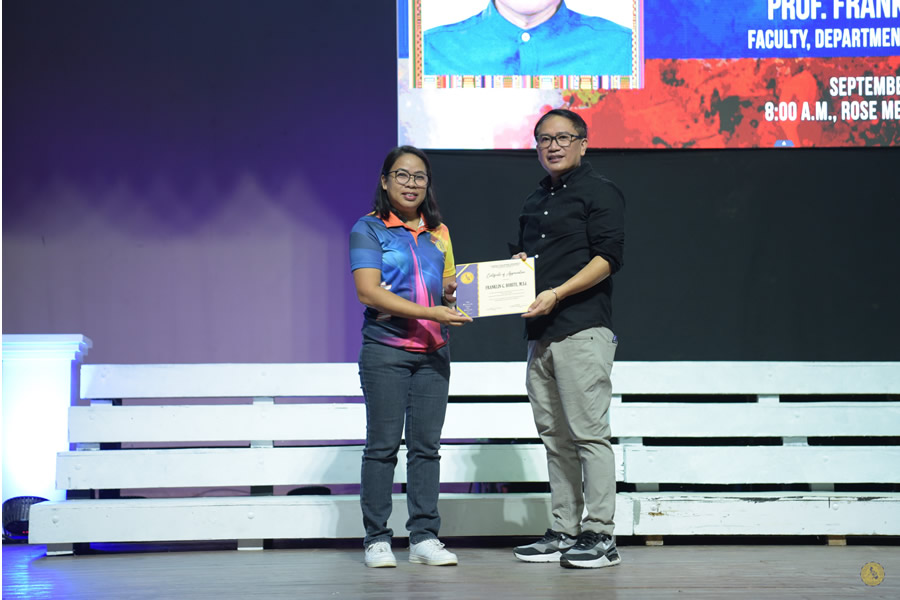By Karren Jay G. Asgar
Prof. Annalie D. Gilongos, CPU NSTP Coordinator, presents a Certificate of Appreciation to Prof. Franklin G. Robite, the esteemed resource speaker, following his insightful lecture on “Self and Filipino Society.
On September 28, 2024, the National Service Training Program (NSTP) of Central Philippine University (CPU) held a lecture titled “Self & Filipino Society,” bringing together students from CWTS program. Held at the Rose Memorial Auditorium, the lecture emphasized the importance of understanding one’s identity and role within the community, urging attendees to reflect on their responsibilities as citizens.
The event began with a community song led by Mrs. Emcy J. Sanchez, followed by an invocation by Mrs. Shirley H. Dario. Participants then sang the Philippine National Anthem, followed by the CPU Alma Mater Song. Mrs. Sanchez introduced the resource speaker, Prof. Franklin G. Robite, a faculty member from the Department of Social Sciences, who delivered an insightful lecture on the theme of “Self and Filipino Society.”
As part of its commitment to fostering civic awareness, CPU-NSTP encouraged students through the lecture to participate actively in their communities. By gaining a better understanding of their roles within society, participants can more effectively engage in NSTP initiatives that promote national identity and service. This focus on personal development and community involvement aligns with the main goals of the NSTP program, which seeks to cultivate responsible citizens dedicated to advancing societal improvement.
Following the informative lecture, an open forum was held. Prof. Annalie D. Gilongos and Maj. Shem L. Catipunan presented certificates of appreciation and tokens of gratitude. Ms. Charissa June G. Deocampo, the emcee, made several announcements, which were followed by a closing prayer led by Mr. Mark Clemens J. Ortaliz.
The CPU-NSTP organizes initiatives that are pivotal in shaping well-rounded individuals committed to making a positive impact in their respective communities.

